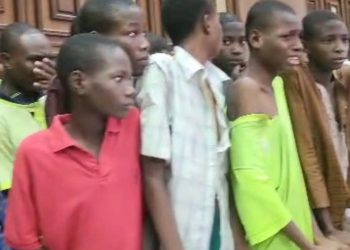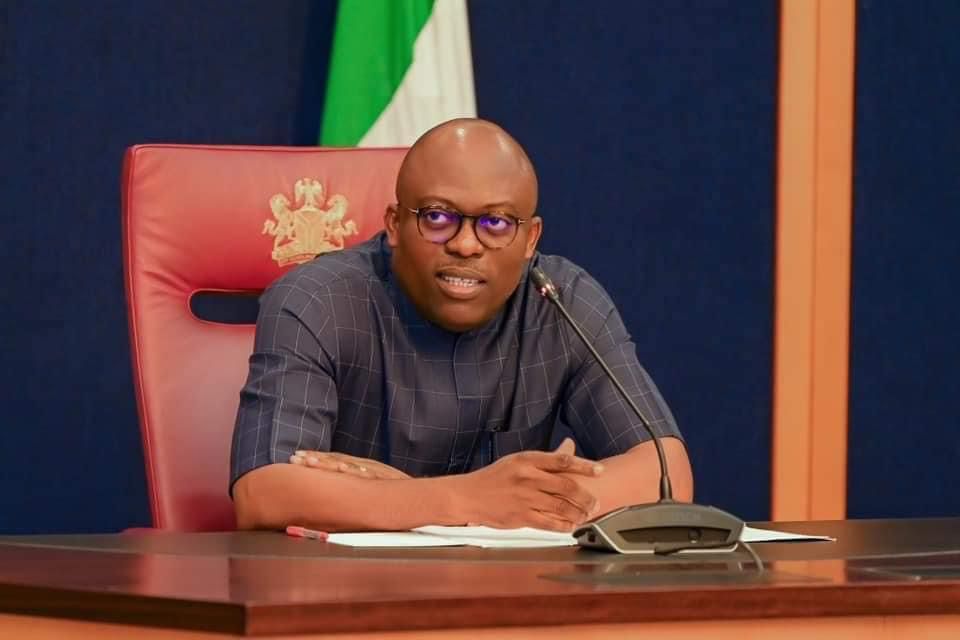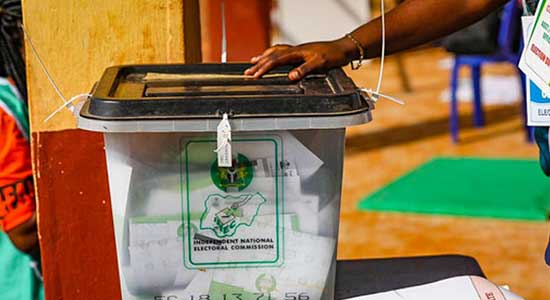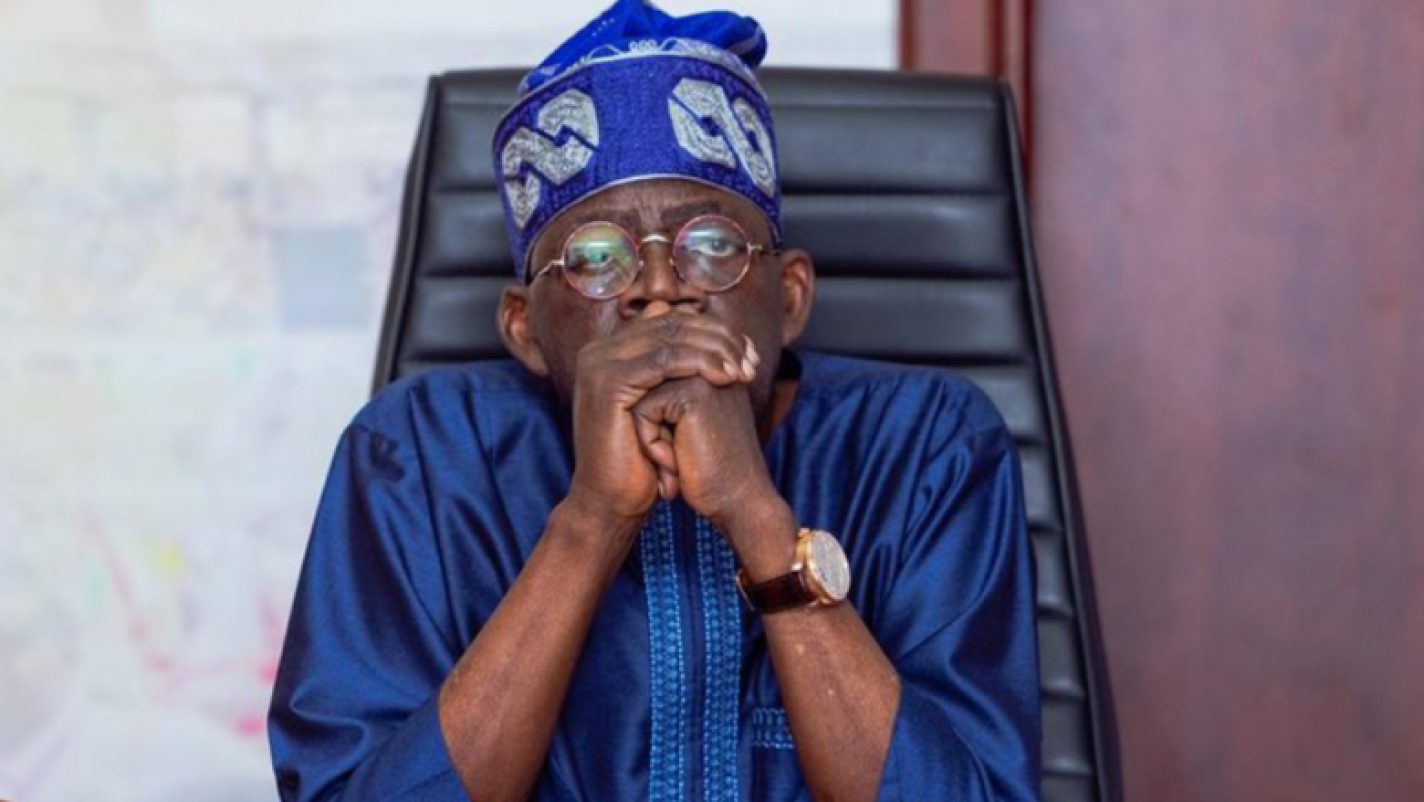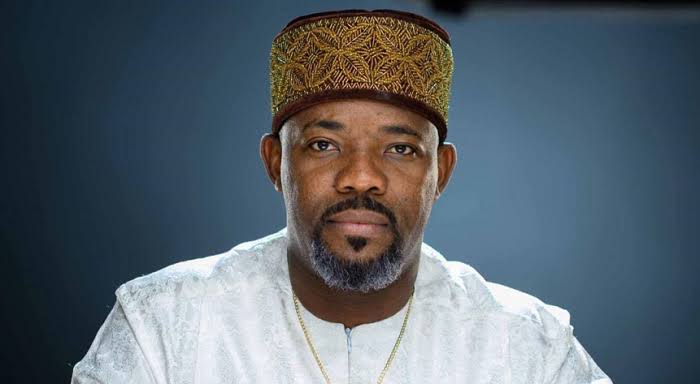The opinions presented in this piece are those of the author and do not necessarily represent InTv Media’s editorial position.Thank you.
Seven days after he emerged on 26 March 2022 as the chair of the ruling All Progressives Congress (APC), Abdullahi Adamu resigned from the senate where he had since 2011 represented the people of Nasarawa west senatorial zone. Senate President Ahmed Lawan read his letter on the floor of the senate on April 12, 2022. Senator Adamu’s resignation took effect 330 days before the date of the 2023 presidential election.

Section 76(2) of Nigeria’s 1999 constitution empowers the Independent National Electoral Commission (INEC) to organize a by-election to fill such a vacancy within 30 to 90 days of the date of the vacancy. Yet, nearly 190 days after the resignation of Senator Adamu, the INEC has not considered it fit to organize an election for his replacement or to explain its failure or refusal to comply with this important constitutional duty.
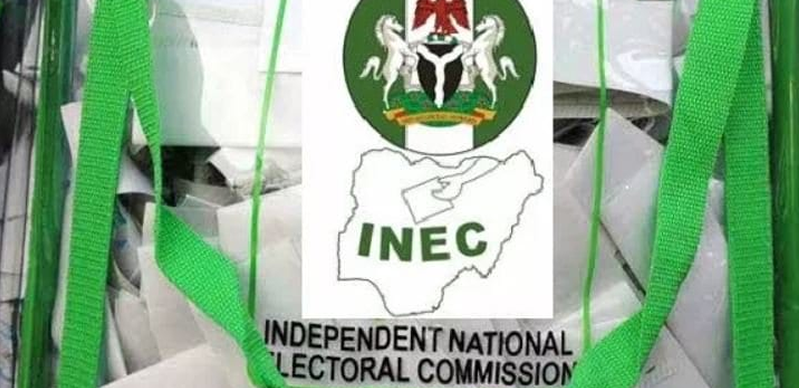
The failure or refusal of INEC to undertake the process required to fill the vacancy created by Senator Adamu’s resignation denies the people of Nasarawa west their entitlement to be represented in the Senate of the National Assembly. They are not the only people in this position.
At the same APC convention in March 2022, another senator, Abubakar Kyari, representing Borno north in north-east Nigeria, was elected Senator Adamu’s deputy. Like Adamu, Kyari by a separate communication addressed to the senate president also resigned his seat with effect from April 1, 2022. Like Adamu’s people in Nasarawa west, Kyari’s people of Borno north have also been without representation in the national assembly since the first day of the second quarter of 2022.
READ ALSO: Dino Melaye Claims APC Not Prepared For Elections, Governance In 2023
One month before the party chose Senators Adamu and Kyari to lead the APC, Hassan Muhammadu Nasiha Gusau, representing Zamfara central also in the senate, was sworn in on February 23, 2022, as the state deputy governor. His seat in the senate, therefore, fell vacant under section 68(1)(d) of the 1999 constitution, which specifically requires a member of the national assembly to “vacate his seat in the house of which he is a member…. if he becomes president, vice-president, governor, deputy governor”. The vacancy in this case of the Zamfara central senatorial zone occurred exactly one year before the 2023 general elections. Since then, they have been without representation in the senate. 22 days after Senators Adamu and Kyari resigned their seats in the senate, on April 23, 2022, Nse Ekpenyong, representing the Oron federal constituency in the house of representatives, died. On July 1, 2022, Jude Ise-Idehen representing the people of Egor/Ikpoba-Okha federal constituency in Edo state similarly died suddenly.
Like the people of Borno north, Nasarawa west, and Zamfara central in the senate, the people of Oron federal constituency in Cross River state, and Egor/Ikpoba-Okha federal constituency in Edo state, both in the Niger Delta have been without representation in the house of representatives since April and July respectively when their representatives died.
Mike Ozekhome, himself a Senior Advocate of Nigeria (SAN) from Edo state, describes the failure or refusal of the INEC to take prompt steps to fill these seats as “inexcusable, egregious, and politically unwise”. The Punch Newspaper reported that INEC spokespersons chose not to respond to inquiries addressed to them on this issue “despite initial promise to speak on the issue”.
In the absence of any explanation from the INEC, we are left to speculate as to why it has chosen to behave as if the constitution is expendable. To excuse INEC’s refusal, Idayat Hassan, executive director of the Centre for Democracy and Development (CDD), a non-governmental think-tank, argues that “no doubt the forthcoming 2023 elections have preoccupied the attention of INEC”.
But on June 18, 2022, nearly four months after the vacancy fell open for the Zamfara central senatorial seat, INEC organised an election for the high office of the governor of Ekiti state. One month later, on July 16, more than two weeks after the death of Jude Ise-Idehen in Edo state, it also organised the election into the office of governor of Osun state. Both of these were state-wide contests, in both cases, much more fraught than for seats in the senate or the house of representatives.
The attempt by the CDD to manufacture an excuse for INEC’s retrenchment of the constitution is evidently without support in either facts or evidence. It is, indeed, disconcerting that civil society actors whose vocation should be to hold INEC to account have chosen to put themselves in the position of self-appointed surrogates of the electoral umpire, inventing alibis for it when it decides to disregard the constitution. This clearly calls into question their capacity or readiness to function as independent or credible monitors of elections organised by the same body.
Another explanation for the failure or refusal of the INEC to organize the elections into these vacant seats as required by the constitution could be that it is reluctant for such contests to be used as barometers to measure the relative strengths of the leading parties ahead of the 2023 elections. This would be unfortunate if it were to be the case because it could encourage a suspicion that the commission, which is supposedly independent, is in fact sympathetic to one party or another. This suspicion would rise to a near certainty if the explanation were to be offered that the partisan leadership of the senate or the house have failed to formally communicate the vacancies to the INEC.
The arguments for complying with the constitution here are overwhelming. First, it is intrinsically the lawful and right thing to do. Second, it is a mandatory constitutional requirement on which INEC actually does not have discretion. Third, it serves a beneficial function of according to the affected constituencies affected representation in these essential chambers of parliament in equality to all other parts of Nigeria.
There is also an instrumental argument: in failing to organize contests into these seats, the INEC passed up an opportunity to have evaluated the bimodal voter accreditation system (BVAS) – its advertised magic solution to all the dysfunctions afflicting elections in Nigeria – in precisely the kinds of locations that would prove its viability, such as in Borno north and in Zamfara central. As such, the INEC voluntarily denies itself useful field experience and intelligence which could immensely advance its preparations and readiness for the 2023 elections.
The course chosen by INEC is therefore not just unlawful, it is also equally counter-intuitive and irrational. It can hardly be argued that a vacancy that occurred in February 2022 was too close to the 2023 election due one year thereafter. The INEC struggles for credibility when it is sought on its behalf to equate that vacancy with another occurring nearly five months later in July.
In the face of these facts, it is unwarranted to regard INEC’s failure to organize these ballots for these parliamentary vacancies as a failure. Rather, it feels both willful and deliberate and carries significant credibility consequences for the commission. The losers are not merely the people of the affected constituencies but also the people of Nigeria who have a right to trust that their electoral umpire should take seriously the public investment in its institutional credibility.
The opinions presented in this piece are those of the author and do not necessarily represent InTv Media’s editorial position.Thank you.
Seven days after he emerged on 26 March 2022 as the chair of the ruling All Progressives Congress (APC), Abdullahi Adamu resigned from the senate where he had since 2011 represented the people of Nasarawa west senatorial zone. Senate President Ahmed Lawan read his letter on the floor of the senate on April 12, 2022. Senator Adamu’s resignation took effect 330 days before the date of the 2023 presidential election.

Section 76(2) of Nigeria’s 1999 constitution empowers the Independent National Electoral Commission (INEC) to organize a by-election to fill such a vacancy within 30 to 90 days of the date of the vacancy. Yet, nearly 190 days after the resignation of Senator Adamu, the INEC has not considered it fit to organize an election for his replacement or to explain its failure or refusal to comply with this important constitutional duty.

The failure or refusal of INEC to undertake the process required to fill the vacancy created by Senator Adamu’s resignation denies the people of Nasarawa west their entitlement to be represented in the Senate of the National Assembly. They are not the only people in this position.
At the same APC convention in March 2022, another senator, Abubakar Kyari, representing Borno north in north-east Nigeria, was elected Senator Adamu’s deputy. Like Adamu, Kyari by a separate communication addressed to the senate president also resigned his seat with effect from April 1, 2022. Like Adamu’s people in Nasarawa west, Kyari’s people of Borno north have also been without representation in the national assembly since the first day of the second quarter of 2022.
READ ALSO: Dino Melaye Claims APC Not Prepared For Elections, Governance In 2023
One month before the party chose Senators Adamu and Kyari to lead the APC, Hassan Muhammadu Nasiha Gusau, representing Zamfara central also in the senate, was sworn in on February 23, 2022, as the state deputy governor. His seat in the senate, therefore, fell vacant under section 68(1)(d) of the 1999 constitution, which specifically requires a member of the national assembly to “vacate his seat in the house of which he is a member…. if he becomes president, vice-president, governor, deputy governor”. The vacancy in this case of the Zamfara central senatorial zone occurred exactly one year before the 2023 general elections. Since then, they have been without representation in the senate. 22 days after Senators Adamu and Kyari resigned their seats in the senate, on April 23, 2022, Nse Ekpenyong, representing the Oron federal constituency in the house of representatives, died. On July 1, 2022, Jude Ise-Idehen representing the people of Egor/Ikpoba-Okha federal constituency in Edo state similarly died suddenly.
Like the people of Borno north, Nasarawa west, and Zamfara central in the senate, the people of Oron federal constituency in Cross River state, and Egor/Ikpoba-Okha federal constituency in Edo state, both in the Niger Delta have been without representation in the house of representatives since April and July respectively when their representatives died.
Mike Ozekhome, himself a Senior Advocate of Nigeria (SAN) from Edo state, describes the failure or refusal of the INEC to take prompt steps to fill these seats as “inexcusable, egregious, and politically unwise”. The Punch Newspaper reported that INEC spokespersons chose not to respond to inquiries addressed to them on this issue “despite initial promise to speak on the issue”.
In the absence of any explanation from the INEC, we are left to speculate as to why it has chosen to behave as if the constitution is expendable. To excuse INEC’s refusal, Idayat Hassan, executive director of the Centre for Democracy and Development (CDD), a non-governmental think-tank, argues that “no doubt the forthcoming 2023 elections have preoccupied the attention of INEC”.
But on June 18, 2022, nearly four months after the vacancy fell open for the Zamfara central senatorial seat, INEC organised an election for the high office of the governor of Ekiti state. One month later, on July 16, more than two weeks after the death of Jude Ise-Idehen in Edo state, it also organised the election into the office of governor of Osun state. Both of these were state-wide contests, in both cases, much more fraught than for seats in the senate or the house of representatives.
The attempt by the CDD to manufacture an excuse for INEC’s retrenchment of the constitution is evidently without support in either facts or evidence. It is, indeed, disconcerting that civil society actors whose vocation should be to hold INEC to account have chosen to put themselves in the position of self-appointed surrogates of the electoral umpire, inventing alibis for it when it decides to disregard the constitution. This clearly calls into question their capacity or readiness to function as independent or credible monitors of elections organised by the same body.
Another explanation for the failure or refusal of the INEC to organize the elections into these vacant seats as required by the constitution could be that it is reluctant for such contests to be used as barometers to measure the relative strengths of the leading parties ahead of the 2023 elections. This would be unfortunate if it were to be the case because it could encourage a suspicion that the commission, which is supposedly independent, is in fact sympathetic to one party or another. This suspicion would rise to a near certainty if the explanation were to be offered that the partisan leadership of the senate or the house have failed to formally communicate the vacancies to the INEC.
The arguments for complying with the constitution here are overwhelming. First, it is intrinsically the lawful and right thing to do. Second, it is a mandatory constitutional requirement on which INEC actually does not have discretion. Third, it serves a beneficial function of according to the affected constituencies affected representation in these essential chambers of parliament in equality to all other parts of Nigeria.
There is also an instrumental argument: in failing to organize contests into these seats, the INEC passed up an opportunity to have evaluated the bimodal voter accreditation system (BVAS) – its advertised magic solution to all the dysfunctions afflicting elections in Nigeria – in precisely the kinds of locations that would prove its viability, such as in Borno north and in Zamfara central. As such, the INEC voluntarily denies itself useful field experience and intelligence which could immensely advance its preparations and readiness for the 2023 elections.
The course chosen by INEC is therefore not just unlawful, it is also equally counter-intuitive and irrational. It can hardly be argued that a vacancy that occurred in February 2022 was too close to the 2023 election due one year thereafter. The INEC struggles for credibility when it is sought on its behalf to equate that vacancy with another occurring nearly five months later in July.
In the face of these facts, it is unwarranted to regard INEC’s failure to organize these ballots for these parliamentary vacancies as a failure. Rather, it feels both willful and deliberate and carries significant credibility consequences for the commission. The losers are not merely the people of the affected constituencies but also the people of Nigeria who have a right to trust that their electoral umpire should take seriously the public investment in its institutional credibility.
The opinions presented in this piece are those of the author and do not necessarily represent InTv Media’s editorial position.Thank you.
Seven days after he emerged on 26 March 2022 as the chair of the ruling All Progressives Congress (APC), Abdullahi Adamu resigned from the senate where he had since 2011 represented the people of Nasarawa west senatorial zone. Senate President Ahmed Lawan read his letter on the floor of the senate on April 12, 2022. Senator Adamu’s resignation took effect 330 days before the date of the 2023 presidential election.

Section 76(2) of Nigeria’s 1999 constitution empowers the Independent National Electoral Commission (INEC) to organize a by-election to fill such a vacancy within 30 to 90 days of the date of the vacancy. Yet, nearly 190 days after the resignation of Senator Adamu, the INEC has not considered it fit to organize an election for his replacement or to explain its failure or refusal to comply with this important constitutional duty.

The failure or refusal of INEC to undertake the process required to fill the vacancy created by Senator Adamu’s resignation denies the people of Nasarawa west their entitlement to be represented in the Senate of the National Assembly. They are not the only people in this position.
At the same APC convention in March 2022, another senator, Abubakar Kyari, representing Borno north in north-east Nigeria, was elected Senator Adamu’s deputy. Like Adamu, Kyari by a separate communication addressed to the senate president also resigned his seat with effect from April 1, 2022. Like Adamu’s people in Nasarawa west, Kyari’s people of Borno north have also been without representation in the national assembly since the first day of the second quarter of 2022.
READ ALSO: Dino Melaye Claims APC Not Prepared For Elections, Governance In 2023
One month before the party chose Senators Adamu and Kyari to lead the APC, Hassan Muhammadu Nasiha Gusau, representing Zamfara central also in the senate, was sworn in on February 23, 2022, as the state deputy governor. His seat in the senate, therefore, fell vacant under section 68(1)(d) of the 1999 constitution, which specifically requires a member of the national assembly to “vacate his seat in the house of which he is a member…. if he becomes president, vice-president, governor, deputy governor”. The vacancy in this case of the Zamfara central senatorial zone occurred exactly one year before the 2023 general elections. Since then, they have been without representation in the senate. 22 days after Senators Adamu and Kyari resigned their seats in the senate, on April 23, 2022, Nse Ekpenyong, representing the Oron federal constituency in the house of representatives, died. On July 1, 2022, Jude Ise-Idehen representing the people of Egor/Ikpoba-Okha federal constituency in Edo state similarly died suddenly.
Like the people of Borno north, Nasarawa west, and Zamfara central in the senate, the people of Oron federal constituency in Cross River state, and Egor/Ikpoba-Okha federal constituency in Edo state, both in the Niger Delta have been without representation in the house of representatives since April and July respectively when their representatives died.
Mike Ozekhome, himself a Senior Advocate of Nigeria (SAN) from Edo state, describes the failure or refusal of the INEC to take prompt steps to fill these seats as “inexcusable, egregious, and politically unwise”. The Punch Newspaper reported that INEC spokespersons chose not to respond to inquiries addressed to them on this issue “despite initial promise to speak on the issue”.
In the absence of any explanation from the INEC, we are left to speculate as to why it has chosen to behave as if the constitution is expendable. To excuse INEC’s refusal, Idayat Hassan, executive director of the Centre for Democracy and Development (CDD), a non-governmental think-tank, argues that “no doubt the forthcoming 2023 elections have preoccupied the attention of INEC”.
But on June 18, 2022, nearly four months after the vacancy fell open for the Zamfara central senatorial seat, INEC organised an election for the high office of the governor of Ekiti state. One month later, on July 16, more than two weeks after the death of Jude Ise-Idehen in Edo state, it also organised the election into the office of governor of Osun state. Both of these were state-wide contests, in both cases, much more fraught than for seats in the senate or the house of representatives.
The attempt by the CDD to manufacture an excuse for INEC’s retrenchment of the constitution is evidently without support in either facts or evidence. It is, indeed, disconcerting that civil society actors whose vocation should be to hold INEC to account have chosen to put themselves in the position of self-appointed surrogates of the electoral umpire, inventing alibis for it when it decides to disregard the constitution. This clearly calls into question their capacity or readiness to function as independent or credible monitors of elections organised by the same body.
Another explanation for the failure or refusal of the INEC to organize the elections into these vacant seats as required by the constitution could be that it is reluctant for such contests to be used as barometers to measure the relative strengths of the leading parties ahead of the 2023 elections. This would be unfortunate if it were to be the case because it could encourage a suspicion that the commission, which is supposedly independent, is in fact sympathetic to one party or another. This suspicion would rise to a near certainty if the explanation were to be offered that the partisan leadership of the senate or the house have failed to formally communicate the vacancies to the INEC.
The arguments for complying with the constitution here are overwhelming. First, it is intrinsically the lawful and right thing to do. Second, it is a mandatory constitutional requirement on which INEC actually does not have discretion. Third, it serves a beneficial function of according to the affected constituencies affected representation in these essential chambers of parliament in equality to all other parts of Nigeria.
There is also an instrumental argument: in failing to organize contests into these seats, the INEC passed up an opportunity to have evaluated the bimodal voter accreditation system (BVAS) – its advertised magic solution to all the dysfunctions afflicting elections in Nigeria – in precisely the kinds of locations that would prove its viability, such as in Borno north and in Zamfara central. As such, the INEC voluntarily denies itself useful field experience and intelligence which could immensely advance its preparations and readiness for the 2023 elections.
The course chosen by INEC is therefore not just unlawful, it is also equally counter-intuitive and irrational. It can hardly be argued that a vacancy that occurred in February 2022 was too close to the 2023 election due one year thereafter. The INEC struggles for credibility when it is sought on its behalf to equate that vacancy with another occurring nearly five months later in July.
In the face of these facts, it is unwarranted to regard INEC’s failure to organize these ballots for these parliamentary vacancies as a failure. Rather, it feels both willful and deliberate and carries significant credibility consequences for the commission. The losers are not merely the people of the affected constituencies but also the people of Nigeria who have a right to trust that their electoral umpire should take seriously the public investment in its institutional credibility.
The opinions presented in this piece are those of the author and do not necessarily represent InTv Media’s editorial position.Thank you.
Seven days after he emerged on 26 March 2022 as the chair of the ruling All Progressives Congress (APC), Abdullahi Adamu resigned from the senate where he had since 2011 represented the people of Nasarawa west senatorial zone. Senate President Ahmed Lawan read his letter on the floor of the senate on April 12, 2022. Senator Adamu’s resignation took effect 330 days before the date of the 2023 presidential election.

Section 76(2) of Nigeria’s 1999 constitution empowers the Independent National Electoral Commission (INEC) to organize a by-election to fill such a vacancy within 30 to 90 days of the date of the vacancy. Yet, nearly 190 days after the resignation of Senator Adamu, the INEC has not considered it fit to organize an election for his replacement or to explain its failure or refusal to comply with this important constitutional duty.

The failure or refusal of INEC to undertake the process required to fill the vacancy created by Senator Adamu’s resignation denies the people of Nasarawa west their entitlement to be represented in the Senate of the National Assembly. They are not the only people in this position.
At the same APC convention in March 2022, another senator, Abubakar Kyari, representing Borno north in north-east Nigeria, was elected Senator Adamu’s deputy. Like Adamu, Kyari by a separate communication addressed to the senate president also resigned his seat with effect from April 1, 2022. Like Adamu’s people in Nasarawa west, Kyari’s people of Borno north have also been without representation in the national assembly since the first day of the second quarter of 2022.
READ ALSO: Dino Melaye Claims APC Not Prepared For Elections, Governance In 2023
One month before the party chose Senators Adamu and Kyari to lead the APC, Hassan Muhammadu Nasiha Gusau, representing Zamfara central also in the senate, was sworn in on February 23, 2022, as the state deputy governor. His seat in the senate, therefore, fell vacant under section 68(1)(d) of the 1999 constitution, which specifically requires a member of the national assembly to “vacate his seat in the house of which he is a member…. if he becomes president, vice-president, governor, deputy governor”. The vacancy in this case of the Zamfara central senatorial zone occurred exactly one year before the 2023 general elections. Since then, they have been without representation in the senate. 22 days after Senators Adamu and Kyari resigned their seats in the senate, on April 23, 2022, Nse Ekpenyong, representing the Oron federal constituency in the house of representatives, died. On July 1, 2022, Jude Ise-Idehen representing the people of Egor/Ikpoba-Okha federal constituency in Edo state similarly died suddenly.
Like the people of Borno north, Nasarawa west, and Zamfara central in the senate, the people of Oron federal constituency in Cross River state, and Egor/Ikpoba-Okha federal constituency in Edo state, both in the Niger Delta have been without representation in the house of representatives since April and July respectively when their representatives died.
Mike Ozekhome, himself a Senior Advocate of Nigeria (SAN) from Edo state, describes the failure or refusal of the INEC to take prompt steps to fill these seats as “inexcusable, egregious, and politically unwise”. The Punch Newspaper reported that INEC spokespersons chose not to respond to inquiries addressed to them on this issue “despite initial promise to speak on the issue”.
In the absence of any explanation from the INEC, we are left to speculate as to why it has chosen to behave as if the constitution is expendable. To excuse INEC’s refusal, Idayat Hassan, executive director of the Centre for Democracy and Development (CDD), a non-governmental think-tank, argues that “no doubt the forthcoming 2023 elections have preoccupied the attention of INEC”.
But on June 18, 2022, nearly four months after the vacancy fell open for the Zamfara central senatorial seat, INEC organised an election for the high office of the governor of Ekiti state. One month later, on July 16, more than two weeks after the death of Jude Ise-Idehen in Edo state, it also organised the election into the office of governor of Osun state. Both of these were state-wide contests, in both cases, much more fraught than for seats in the senate or the house of representatives.
The attempt by the CDD to manufacture an excuse for INEC’s retrenchment of the constitution is evidently without support in either facts or evidence. It is, indeed, disconcerting that civil society actors whose vocation should be to hold INEC to account have chosen to put themselves in the position of self-appointed surrogates of the electoral umpire, inventing alibis for it when it decides to disregard the constitution. This clearly calls into question their capacity or readiness to function as independent or credible monitors of elections organised by the same body.
Another explanation for the failure or refusal of the INEC to organize the elections into these vacant seats as required by the constitution could be that it is reluctant for such contests to be used as barometers to measure the relative strengths of the leading parties ahead of the 2023 elections. This would be unfortunate if it were to be the case because it could encourage a suspicion that the commission, which is supposedly independent, is in fact sympathetic to one party or another. This suspicion would rise to a near certainty if the explanation were to be offered that the partisan leadership of the senate or the house have failed to formally communicate the vacancies to the INEC.
The arguments for complying with the constitution here are overwhelming. First, it is intrinsically the lawful and right thing to do. Second, it is a mandatory constitutional requirement on which INEC actually does not have discretion. Third, it serves a beneficial function of according to the affected constituencies affected representation in these essential chambers of parliament in equality to all other parts of Nigeria.
There is also an instrumental argument: in failing to organize contests into these seats, the INEC passed up an opportunity to have evaluated the bimodal voter accreditation system (BVAS) – its advertised magic solution to all the dysfunctions afflicting elections in Nigeria – in precisely the kinds of locations that would prove its viability, such as in Borno north and in Zamfara central. As such, the INEC voluntarily denies itself useful field experience and intelligence which could immensely advance its preparations and readiness for the 2023 elections.
The course chosen by INEC is therefore not just unlawful, it is also equally counter-intuitive and irrational. It can hardly be argued that a vacancy that occurred in February 2022 was too close to the 2023 election due one year thereafter. The INEC struggles for credibility when it is sought on its behalf to equate that vacancy with another occurring nearly five months later in July.
In the face of these facts, it is unwarranted to regard INEC’s failure to organize these ballots for these parliamentary vacancies as a failure. Rather, it feels both willful and deliberate and carries significant credibility consequences for the commission. The losers are not merely the people of the affected constituencies but also the people of Nigeria who have a right to trust that their electoral umpire should take seriously the public investment in its institutional credibility.




